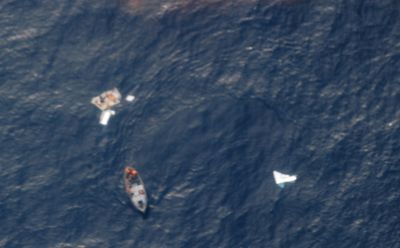Bodies found in crash area
Briefcase contained Air France ticket

RECIFE, Brazil – Searchers found two passengers’ bodies and a briefcase containing an Air France Flight 447 ticket in the Atlantic Ocean near where the jetliner is believed to have crashed, a Brazil military official said Saturday.
The French agency investigating the disaster, meanwhile, said airspeed instruments were not replaced as the maker recommended before the plane disappeared in turbulent weather nearly a week ago during a flight from Rio de Janeiro to Paris with 228 people aboard.
All were killed in the world’s worst commercial air accident since 2001. It was Air France’s deadliest plane crash.
The bodies of two male passengers were recovered Saturday morning about 45 miles south of where Air France Flight 447 emitted its last signals – roughly 400 miles northeast of the Fernando de Noronha islands off Brazil’s northern coast.
Brazilian air force spokesman Col. Jorge Amaral said an Air France ticket was found inside a leather briefcase.
“It was confirmed with Air France that the ticket number corresponds to a passenger on the flight,” he said.
Admiral Edison Lawrence said the bodies were being transported to the Fernando de Noronha islands for identification. A backpack with a laptop and a vaccination card also was recovered.
The finds could potentially establish a more precise search area for the crucial black box flight data and voice recorders that could tell investigators why the jet crashed.
The U.S. Navy is sending two high-tech devices to French ships that will help them locate the black boxes, a senior U.S. defense official said Saturday.
The discovery of the bodies and debris gave relief to some family members, many of whom gathered in a hotel in Rio.
The French accident investigation agency, BEA, found the plane received inconsistent airspeed readings from different instruments as it struggled in a massive thunderstorm.
The investigation is increasingly focused on whether external instruments may have iced over, confusing speed sensors and leading computers to set the plane’s speed too fast or slow – a potentially deadly mistake in severe turbulence.
Airbus recommended that all its airline customers replace instruments that help measure speed and altitude, known as Pitot tubes, on the A330, the model used for Flight 447, said Paul-Louis Arslanian, the head of the agency.
“They hadn’t yet been replaced” on the plane that crashed, said Alain Bouillard, head of the French investigation.